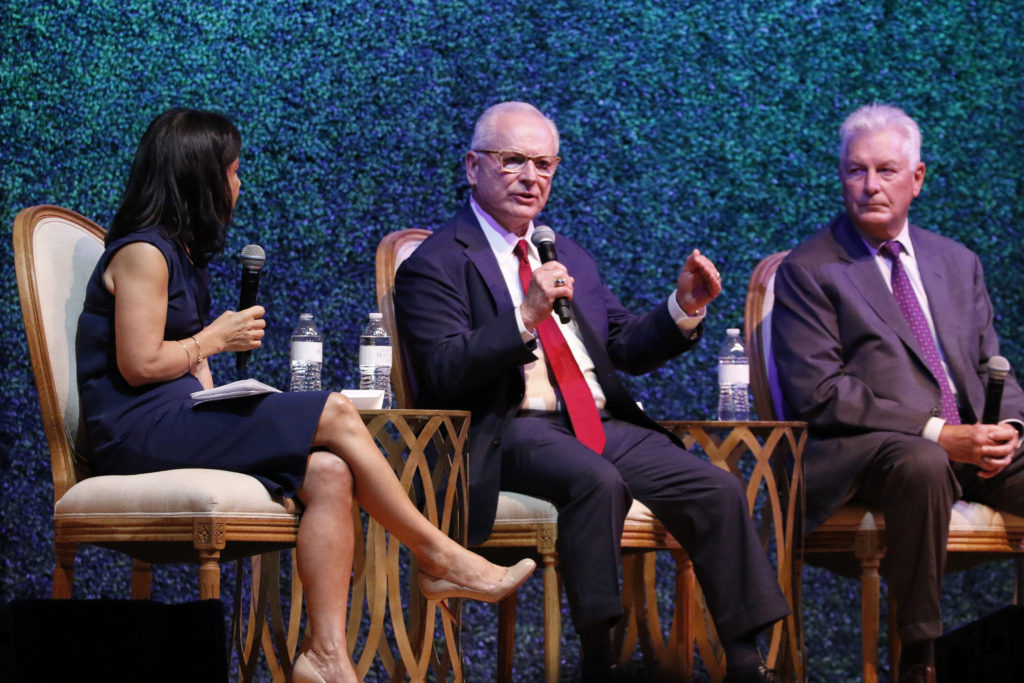
Nashville-based HCA launched 50 years ago at a time when for-profit health care basically didn’t exist. The company has faced five decades of highs and lows. And as it marks its anniversary, executives are being more candid about how the business model has evolved since 1968.
In the beginning, there wasn’t a lot of strategy to buying hospitals,
after purchasing a single site in Nashville. Retiring CEO Milton Johnson, who has spent a 36-year career at HCA, says the plucky startup took what it could get.
“It was almost like a mentality of dots on a map,” Johnson said, talking about company history at this year’s Health:Further conference. “You couldn’t be choosy, really, what kind of hospitals you purchased. There were a lot of rural hospitals.”
The facilities were owned by county governments or faith-based institutions, often struggling to pay for repairs or upgrades. But HCA was willing to invest, and it paid off.
The more hospitals it turned around, the easier it was to keep buying. At one point,
after merging with Columbia, HCA had 360 hospitals around the country. Then meteoric growth halted.
“You fast forward to times that we would probably like to forget — not probably, would like to forget,” former CEO Jack Bovender said at an event last week with the Nashville Health Care Council.
In the 1990s, federal investigators discovered widespread Medicare fraud, resulting in what was
the largest government fraud settlement in U.S. history.
The CEO who led Columbia/HCA, Rick Scott,
now Florida’s governor, was ousted. Founder Tommy Frist Jr., who started the company in 1968 with his father and fast-food pioneer Jack Massey, returned to lead the company. Bovender was second in command until he took over as CEO.
“We would have probably lost the company, or at least a great portion of it, if it had not been for that intervention,” Bovender said.
Since those tumultuous years, HCA has become much pickier about where it has hospitals, downsizing its holdings by half, selling off most of its rural sites. The company currently has 178 hospitals.
Urban areas are now the specialty. In fact, the company tries to own hospitals in growing cities. And not just one, but often five or six, along with surgery centers, free-standing emergency rooms and physician practices that all feed the hospitals with patients.
“Today, what I think is tremendously unique and powerful about HCA is this incredible portfolio of markets that we have,” chief operating officer Sam Hazen said. He’ll be promoted to CEO at the end of the year.
In Nashville and Austin, the company has more than a third of all hospital beds. For the entire state of Florida, HCA controls nearly a quarter of the market.
For all that dominance, HCA has half as many hospitals as it did 20 years ago. Many of the castoffs are now owned by smaller for-profit hospital chains based in the Nashville area, hoping to be the next HCA.


